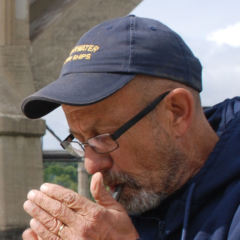It was 2020/2021. It was the time of Covid. It was a pandemic. Salvation, as measured by epidemiologists, seemed an intolerably long way off. Reassurance, as expressed by politicians, was an imaginary conceit. Comfort, though, can be shared through love. Jesus told us that, and we should never have doubted.
In a recent article titled Keeping a diary at the end of the world, The Atlantic magazine talked about how the early days of COVID spurred multiple public and private journaling project, as individuals grappled with the awareness that they were living through history.
Some, of course, were built around letters to family and friends, some were destined to be published widely, and others were public, though targeted to a specific population. My collection of short essays, titled Solitude, is one of the latter: as a council chair for a Lutheran faith community, I felt called to provide reflections for the comfort and consideration of the congregations during a pastoral vacancy. Eventually, the reflections seemed to track the waves of infection, recovery and hope.
This little book “is what it is” and while I hope readers enjoy and find meaning in it, I make no promises. It is available at Amazon HERE or through other retailers at Draft to Digital HERE
